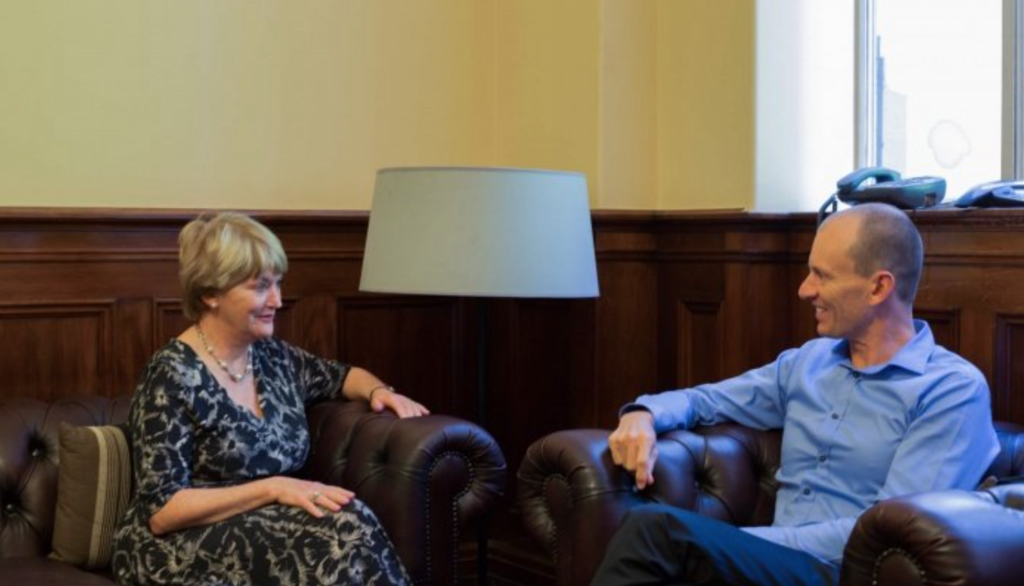“I don’t care who you are, how long you’ve been doing something, or how much of an expert you are, you can never see the back of your own head”. One of my supervisor colleagues sent me this quote recently. It made me stop and reflect on my own coaching and supervision journey over the past 15 years.

As a passionate believer in the benefits of coaching supervision, it’s hard for me to understand why many coaches don’t have their own supervisor. I believe that the profession of coaching is one of lifelong learning. To be a great coach we need to become increasingly self-aware, check constantly on our own blind spots, and be “fit for purpose”. We accompany our coaching participants along their journeys that are increasingly VUCA (Volatile, Uncertain, Complex and Ambiguous) and that in itself is a volatile and complex process.
We work one-on-one with people’s emotions and vulnerabilities; we are subject to the immense challenges and complexities of continuously changing organisational systems and, at the same time, we are expected to help our coaching participants make sense of their worlds. We invite our coaching participants into a deeply reflective process by asking them tough questions in order for them to develop their lateral thinking and new understandings. This process can lead to making changes or reducing confusion. A large proportion of coaches are sole practitioners; we work alone and sometimes experience a sense of isolation.
And yet so many of us expect to do this extraordinary work without professional support.
What is supervision?
So, what is supervision? Some people find the very word challenging! I think of it as two words: super and vision – a process of helicoptering above one’s work or stepping back, allowing us to take a broader view of our practice. It helps to make sense of our past experiences and practice. According to Armstrong (2009), supervision offers the following functions:
- A learning function (enhancing professional craft knowledge)
- An insight function (enhancing self-awareness and self-regulation)
- An ‘outsight’ function (enhancing consideration of influences from the whole system and including them in the reflection).
Having regular coaching supervision gives me all these benefits. In this precious space with my supervisor I am able to deeply observe and reflect on issues that I experience in my relationships with my clients. I constantly learn more about myself, my vulnerabilities, my conscious and unconscious beliefs and the ‘shadows’ that may haunt me from my past that can prevent me from being totally present for my clients. I also learn about my strengths and reflect on how I can fully harness them which in turn, gives me the confidence to become braver in the work that I do.
I want to be the best coach for my clients; I want to help everyone I work with become the best they can be. In order to do this, I realise that I need to continuously learn more about myself. I need to be aware of the ‘buttons’ that get pushed from time to time when I’m working with a coaching participant. Supervision helps me to gain a meta-perspective around my coaching that allows me to remain curious, use my intuition and stay mindful. It enables me to respond more deeply and effectively with my clients and increases the difference I can make in their world and, in turn, with their stakeholders.
One-on-One and Group Supervision
My belief in coaching supervision is so strong that I actively participate in two types of coaching supervision.
- I engage my own supervisor for one-on-one supervision.
- I am also part of a supervision group.
Both have enormous benefits for me. The individual sessions allow me to experience personal attention and to have the supervision process specifically tailored to my particular needs. Group supervision offers me rich learning from my colleagues. It also provides me with a sense of collegiality. As I work with many groups in organisations, actually being in a group myself is a great learning experience. The dynamics that play out sometimes mirror the organisational issues that may be occurring in a coaching participant’s scenario.
Offer the best possible service we can
In conclusion, as coaches, we owe it to ourselves and our clients to offer the best possible service we can. Supervision can help you become a more adept and confident coach, consistently delivering value for your clients. It gives you support, encouragement, insight and ongoing learning.
Robert Rabbin, author of Invisible Leadership, wrote “Any leader who is not actively developing their level of consciousness is not qualified for leadership of any kind… Transformation requires supervision, and without it, change is doomed to failure, confusion and personal distortion.
Recent Comments